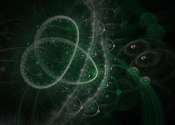Physicists develop a novel quantum theory of light-induced matter
A team led by a physicist from City University of Hong Kong (CityU) recently developed a new quantum theory that explains the "light-induced phase" of matter and predicts its novel functionalities. The new theory has the ...









